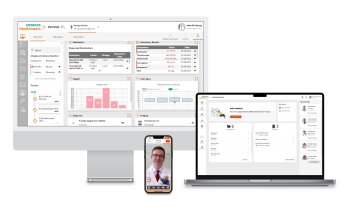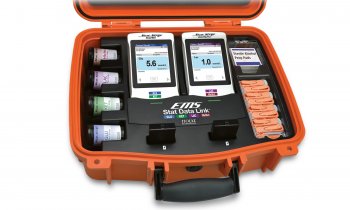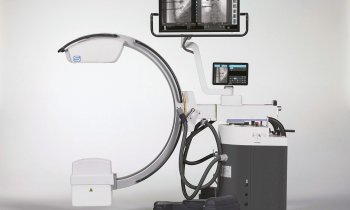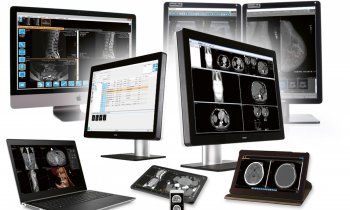Hard-wiring e-health
After years of talking, suddenly European e-health is moving out of conference rooms and onto the computers of healthcare professionals.
John Brosky reports
While other industries race towards an all-digital world, healthcare remains frozen in the Analogue Age. However, the success of established, world-leading e-health programmes in Denmark, Andalusia and Lombardy, have built confidence in secure patient data exchanges.
This April, France will be the first among Europe’s large population states to introduce a national system for sharing patient record sharing by bringing online the dossier medical personnel.
To speed up and take e-health to the next level, health records will need to follow Europe’s highly mobile citizens when they cross national borders. Following three years of study, connecting Europe’s wildly diverse national systems is at last is shifting from project managers into the field.
The first bold step into this operational phase was the marathon testing event ‘Projectathon’, organised by Smart Open Services for European Patients (epSOS) in Bratislava in November, which drew in over 140 engineers from nine countries (Austria, the Czech Republic, Denmark, Spain, France, Greece, Italy, Sweden and Slovakia) to interconnect for the first time multiple independently developed systems. 146 of 165 tests were successfully completed, and a second Projectathon will take place in Pisa, Italy (11-15 April 2011), expecting more countries and health information system developers to attend.
In the short history of cross-border e-health, the interconnection of so many countries to share health records has never been tried. For epSOS, the Bratislava Projectathon also enabled determination of which countries were ready to participate in a year-long pilot programme beginning later this year. This will involve over 30,000 healthcare professionals at 183 hospitals, 2,149 pharmacies and 1,113 point-of- care or general practice clinics. (See EH issue 02, 2010: ‘Crossing frontiers in e-health’)
According to epSOS Coordinator Fredrik Linden, the importance of the Bratislava Projectathon was that ‘we successfully introduced end-to-end testing for healthcare professionals and contributed to advancing the global interoperability work. It is now proven the technology is there to support interoperable patient summaries and ePrescriptions. Now it’s clear which steps need to be taken next regarding the technical and organisational level to make the pilot operation successful.’
Beyond computer interfaces, it took a year just for 10 different epSOS work groups to sort out legal and technical challenges among Member States for transferring electronic patient data. ‘There are many difficult issues to be solved to fulfil the vision of e-health as an enabler for a continuity of care both within Member States and across borders between the Member States,’ said Fredrik Linden. ‘For the epSOS pilot we picked only two small issues out of this context, basic patient summaries and e-prescriptions, yet they are proving to be a world-class challenge.’
The protocols for linking the disparate national systems were specified by epSOS based heavily on integration profiles developed by Integrating the Healthcare Enterprise (IHE), an international open source method for the coordinated use of established standards, such as DICOM (Digital Imaging in Communications and Medicine) and HL7 (Health Language Seven).
Key to the success of the event was the use by epSOS of IHE profile specifications and the unique Gazelle Test Management Tool. Participants registered their systems through Gazelle prior to the Projectathon and used simulators and validation tools for the execution of lab testing. During the event, the same set of tools and simulators was used to assist testers and monitors in their tasks: A team of eight Connectathon veterans led by IHE-Europe served as monitors for the Projectathon, assisting engineers in test set ups and verifying tests results.
25.02.2011











